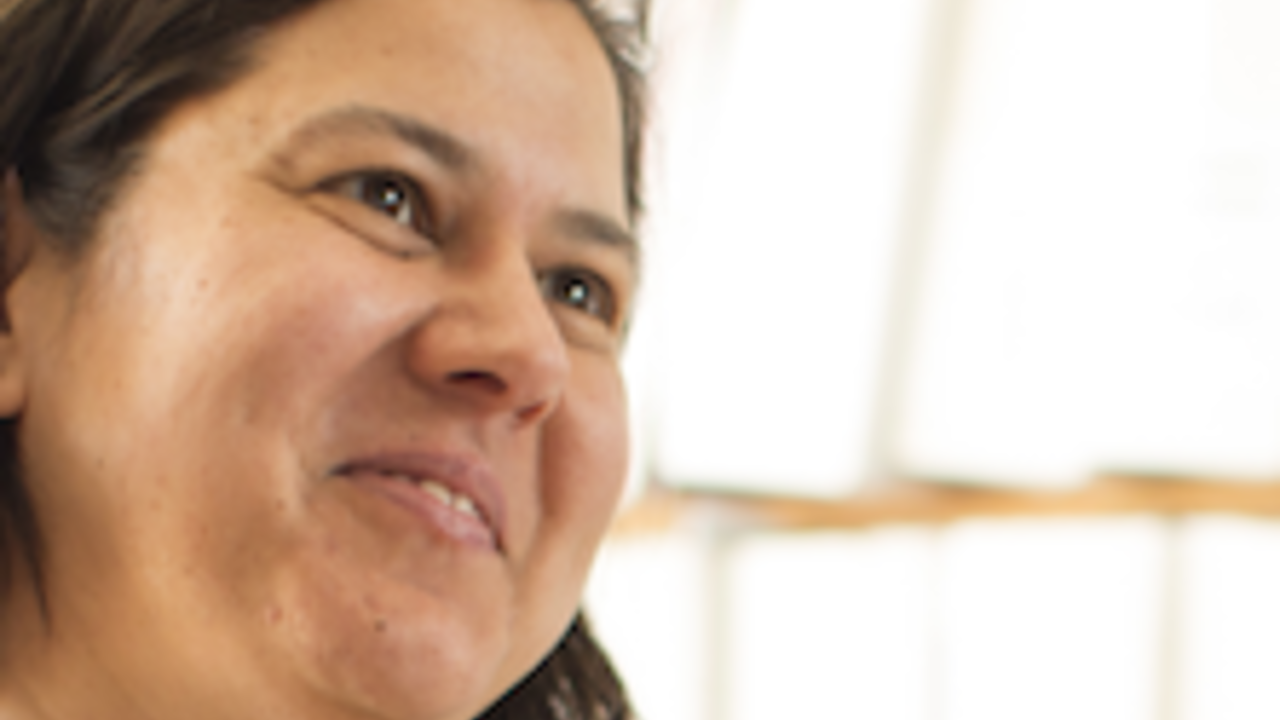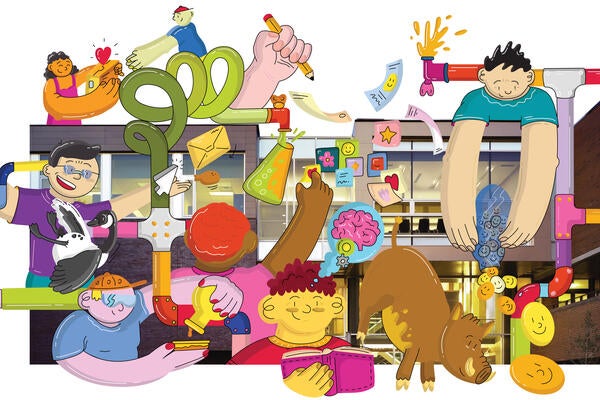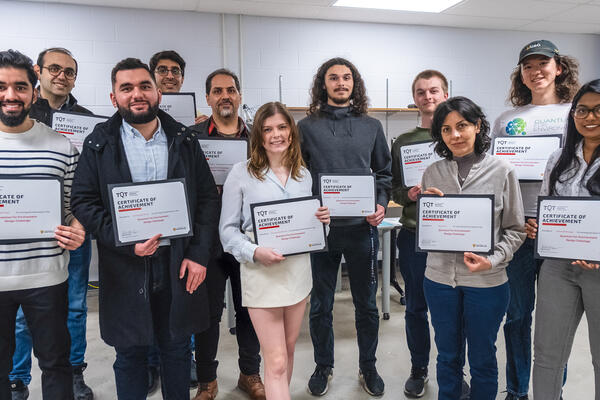
What we know about forgetting
Research at the University of Waterloo suggests we shouldn’t be too quick to blame faulty neurons for memory lapses: It’s probably context.

Research at the University of Waterloo suggests we shouldn’t be too quick to blame faulty neurons for memory lapses: It’s probably context.
By Staff Communications & Public Affairs
You’re at a cocktail party, introducing your spouse to a colleague you haven’t seen in years. Suddenly, your brain freezes. Crickets chirp. A dog barks in the distance. Awkward.
Research at the University of Waterloo suggests we shouldn’t be too quick to blame faulty neurons: It’s probably context. In the way our memory catalogues and references information, that face belongs somewhere else.
“We find this to be one of the frustrating aspects of memory,” says Myra Fernandes, whose work with Shahnaz Koji, a PhD student, has revealed that as adults age, we’re less likely to remember a face if it appears in a different context than where we first saw it.
One bit of good news: Context doesn’t appear to be a problem when it comes to recognizing people with whom we have close emotional ties — family members and best friends.
Nevertheless, that embarrassing lapse of recall is enough to drive you to distraction. Fernandes, an associate professor in cognitive neuroscience, has been studying that, too.
The fact that many of us can work and listen to music in the background, but can’t follow two overlapping conversations, appears to have something to do with combinations of incoming information.
Two voices can distract you while you’re talking, but classical music might not because it’s competing for a different area of your brain.
“It’s only when you have competition for the exact same brain structure that you’re going to get what we call ‘catastrophic interference.’ You can’t remember as much as you normally would,” Fernandes says.
The research has implications for work and public safety.
It raises questions about how distractions, such as the buzz of multiple conversations in an open office environment, affect productivity.
And at what point does the job of an air-traffic controller become dangerously saturated as he tunes in to radio transmissions and watches blips on a screen?
“Everybody’s into multi-tasking and trying to be the most efficient, but you can’t be so efficient that you cause harm,” Fernandes says.

Read more
First-year students hone more than their research skills by exploring what it means to be happy

Read more
12 Waterloo students and postdoctoral fellows receive up to $10,000 in funding to develop their green-tech solutions

Read more
English professor reflects on the innovative field of children’s literature and the challenges of writing and publishing picture books
The University of Waterloo acknowledges that much of our work takes place on the traditional territory of the Neutral, Anishinaabeg and Haudenosaunee peoples. Our main campus is situated on the Haldimand Tract, the land granted to the Six Nations that includes six miles on each side of the Grand River. Our active work toward reconciliation takes place across our campuses through research, learning, teaching, and community building, and is co-ordinated within the Office of Indigenous Relations.